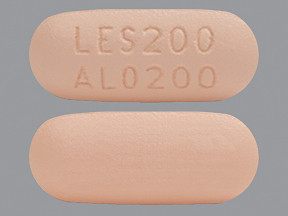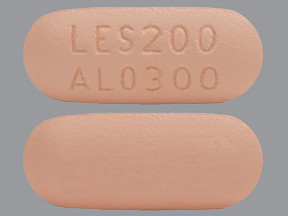LESINURAD/ALLOPURINOL - ORAL
PHONETIC PRONUNCIATION: (le-SIN-ure-ad/AL-oh-PURE-i-nol)
COMMON BRAND NAME(S): Duzallo
GENERIC NAME(S): lesinurad/allopurinol
Uses
USES: This medication is a combination of 2 ingredients: lesinurad and allopurinol. It works by decreasing the amount of uric acid your body makes, and by helping the kidneys get rid of uric acid. Increased uric acid levels can cause gout attacks. This combination medication is used to lower uric acid when allopurinol alone has not worked well enough. This effect helps prevent gout flares/attacks.
How to use LESINURAD/ALLOPURINOL - ORAL
HOW TO USE: See also Warning section. Read the Medication Guide provided by your pharmacist before you start taking this medication and each time you get a refill. If you have any questions, ask your doctor or pharmacist. Take this medication by mouth with food as directed by your doctor, usually once daily in the morning with a full glass of water (8 ounces/240 milliliters). Drink plenty of fluids (at least 8 full glasses a day) while taking this medication to help it work better, unless otherwise directed by your doctor. Use this medication regularly to get the most benefit from it. To help you remember, take it at the same time each day. If you are switching from taking lesinurad or allopurinol to this combination product, be sure to stop taking the other lesinurad or allopurinol product to avoid taking too much medication(s) and increasing the risk of side effects. You may have more gout attacks for several months after you start taking this medicine while your body gets rid of extra uric acid. Do not stop taking this medication if you have a gout flare/attack. This medication is not for treating gout attacks. Your doctor may prescribe other medication (including colchicine, NSAIDs such as ibuprofen, naproxen, or indomethacin) to prevent or treat a gout attack while you are taking this medication. Continue to take lesinurad/allopurinol and your prescribed medicines for gout attacks as directed by your doctor. Tell your doctor if your condition does not get better or if it gets worse.
Side Effects
Precautions
Interactions
Overdose
Images

- color
- light orange
- shape
- oblong
- imprint
- LES200 ALO200

- color
- light orange
- shape
- oblong
- imprint
- LES200 ALO200

- color
- dark orange
- shape
- oblong
- imprint
- LES200 ALO300

- color
- dark orange
- shape
- oblong
- imprint
- LES200 ALO300
Reviews
Faq for LESINURAD/ALLOPURINOL - ORAL
Lesinurad/Allopurinol oral medication is used to treat gout, a type of arthritis that occurs due to high levels of uric acid in the body.
Lesinurad helps the body eliminate excess uric acid through the kidneys, while Allopurinol reduces the production of uric acid in the body. Together, they help reduce uric acid levels and prevent gout attacks.
Common side effects may include rash, nausea, diarrhea, headache, and an increase in liver enzymes. It is important to consult with your doctor if you experience any severe or persistent side effects.
The effects of Lesinurad/Allopurinol may vary depending on the individual. Some people may experience improvement within a few days, while others may take several weeks to notice a difference in their gout symptoms.
It is important to inform your healthcare provider about all medications you are currently taking, including over-the-counter drugs and herbal supplements, to check for potential interactions. There may be certain medications that should not be taken together with Lesinurad/Allopurinol.
The duration of Lesinurad/Allopurinol treatment depends on your condition and your doctor's recommendation. It is typically used as a long-term treatment to reduce uric acid levels and prevent gout attacks.
It is important to consult with your doctor before taking Lesinurad/Allopurinol if you are pregnant, planning to become pregnant, or breastfeeding. Your doctor will assess the potential risks and benefits to determine if it is safe for you.
Lesinurad/Allopurinol helps manage and prevent gout attacks by reducing uric acid levels, but it is not a cure for gout. It is a long-term treatment that needs to be taken as prescribed by your healthcare provider.
The safety and effectiveness of Lesinurad/Allopurinol in children have not been established, so it is generally not recommended for use in pediatric patients unless specifically prescribed by a pediatric specialist.
Warning
WARNING: One ingredient in this combination product, lesinurad, has caused very serious kidney problems. Tell your doctor right away if you notice any signs of kidney problems, such as lower back pain, nausea/vomiting, painful/difficult urination, change in the amount of urine.
Disclaimer
IMPORTANT: HOW TO USE THIS INFORMATION: This is a summary and does NOT have all possible information about this product. This information does not assure that this product is safe, effective, or appropriate for you. This information is not individual medical advice and does not substitute for the advice of your health care professional. Always ask your health care professional for complete information about this product and your specific health needs.
No Reviews Yet